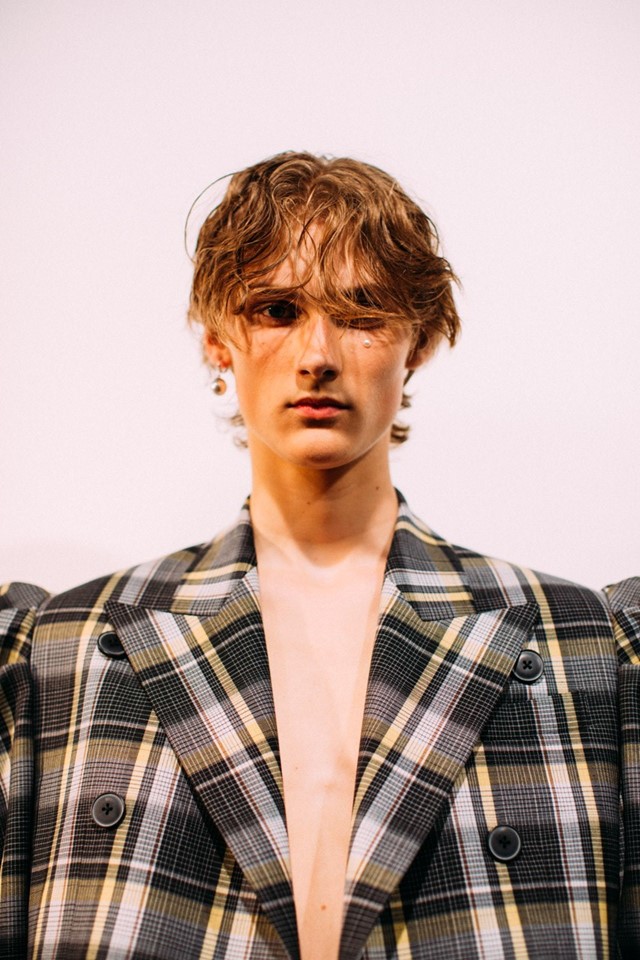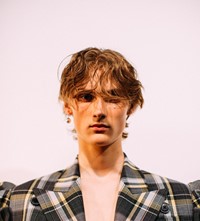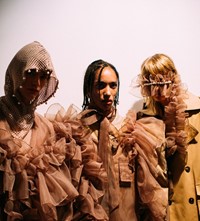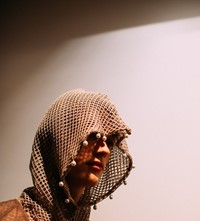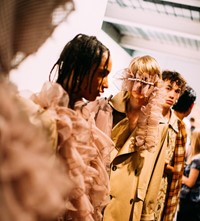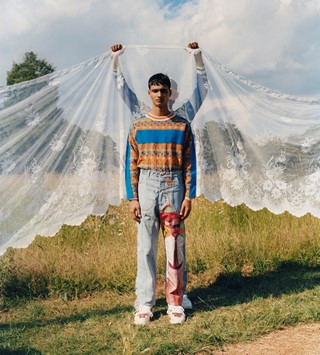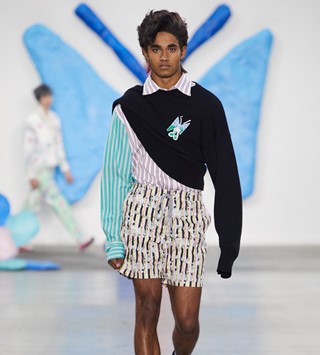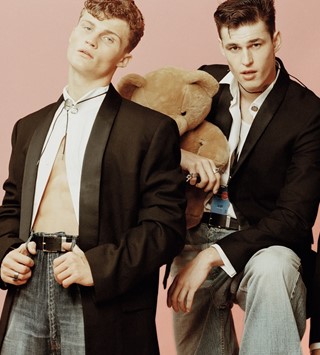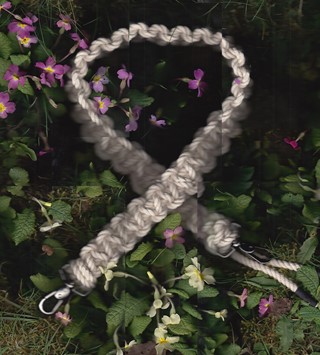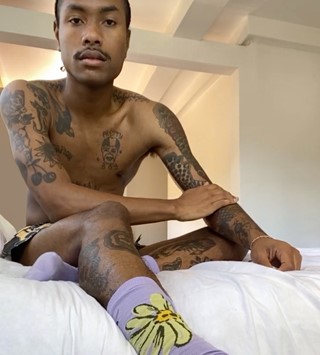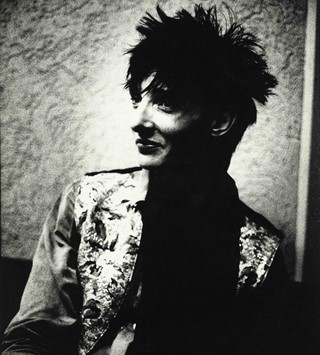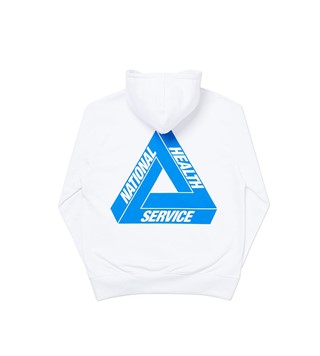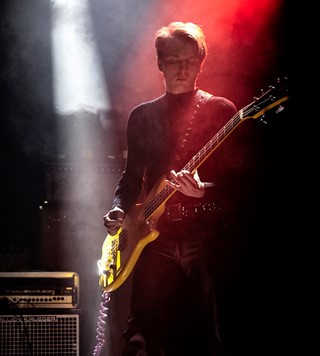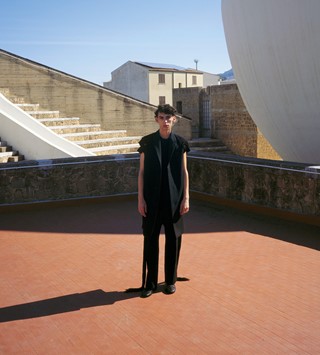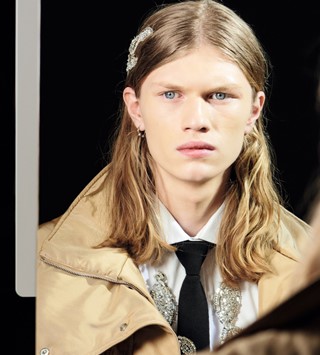The Gender-Defying Korean Brand That Just Showed in London
- TextTaylor Glasby
Ahead of their S/S19 show – their first outside of Seoul – Shin Kyu Yong and Park Ji Sun introduce their brand and explain why they want to ‘break the rules’ when it comes to gender
Today, the genderless Korean label Blindness presented its S/S19 collection at London Fashion Week Men’s, in what was its first show outside of Seoul. “London Fashion Week Men’s is a great playground to test the global market,” said Shin Kyu Yong and Park Ji Sun, the quiet, poised design duo behind the LVMH Prize-nominated brand, when we meet them prior to the show. “And as young designers, it’s a welcoming environment to show the collection to an audience and the media.”
In the austere beauty of Somerset House, the pair are in the middle of casting models for the show. Around us is their S/S19 collection, which looks to “first love” as an inspiration, delving into its “curiosity and confusion, naivety and emotional turmoil”. The rails are a wonderland of painstakingly ruffled black and pale olive green organza, mesh hoodies, puffed sleeves, knife-sharp pleats, dazzling white and royal blue vertical stripes of all widths, leather harnesses, and white neoprene printed with colourful, realistic tangles of flowers.
Blindness’s references stretch from the medieval and Elizabethan periods and the pearl-adorned Maharajahs, to David Bowie and films such as The Danish Girl. Recently, it’s brought homegrown politics to its list of inspirations, too – S/S18 was partly inspired by Picasso’s ‘Massacre In Korea’ and the divide between North and South Korea, which was reflected in the billowing parachute dresses. There are recurring themes too, such as pearls, mesh, and ruffles.
“Pearls are not a men’s accessory, they’re not male-friendly and that’s why we wanted to trial them” – Park Ji Sun
“The ruffle continually inspires us,” says Ji-Sun. “And the vest – it’s based on the women’s corset and we want to develop it as a men’s version of that so we keep using it. It’s about challenging ourselves to make it better and that keeps us excited. As for the pearls... they’re not a men’s accessory, they’re not male-friendly and that’s why we wanted to trial them. They brings freshness and a distinctive character, so we experiment with them as a brand signature.”
Their love of tinkering with an idea, reworking it until it takes on a new form and a different layer of meaning, makes perfect sense when you discover neither had set out to be fashion designers. Kyu Yong dropped out of an engineering degree before enrolling at fashion school, while Ji Sun originally trained as a furniture designer. Kyu Yong founded Blindness in 2013 and Ji Sun joined him in 2015.
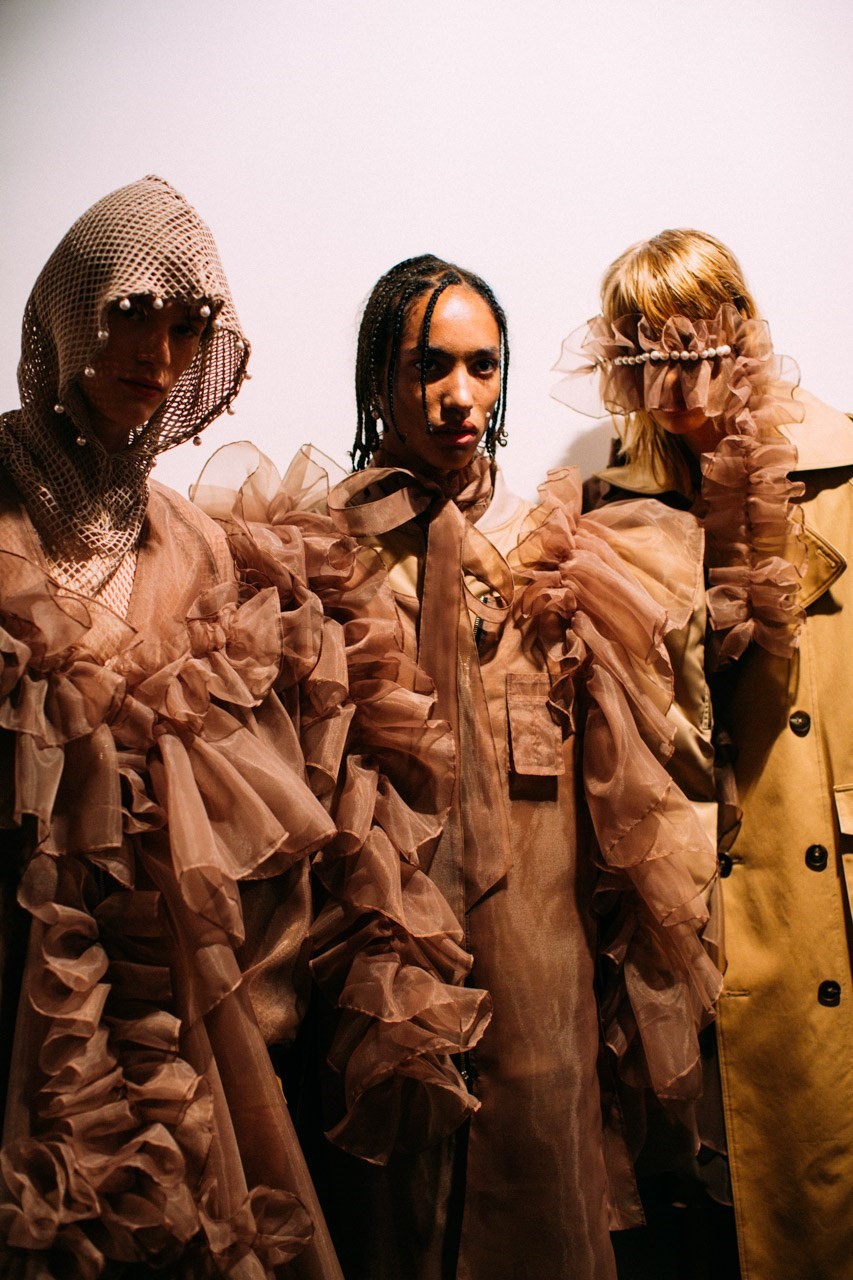
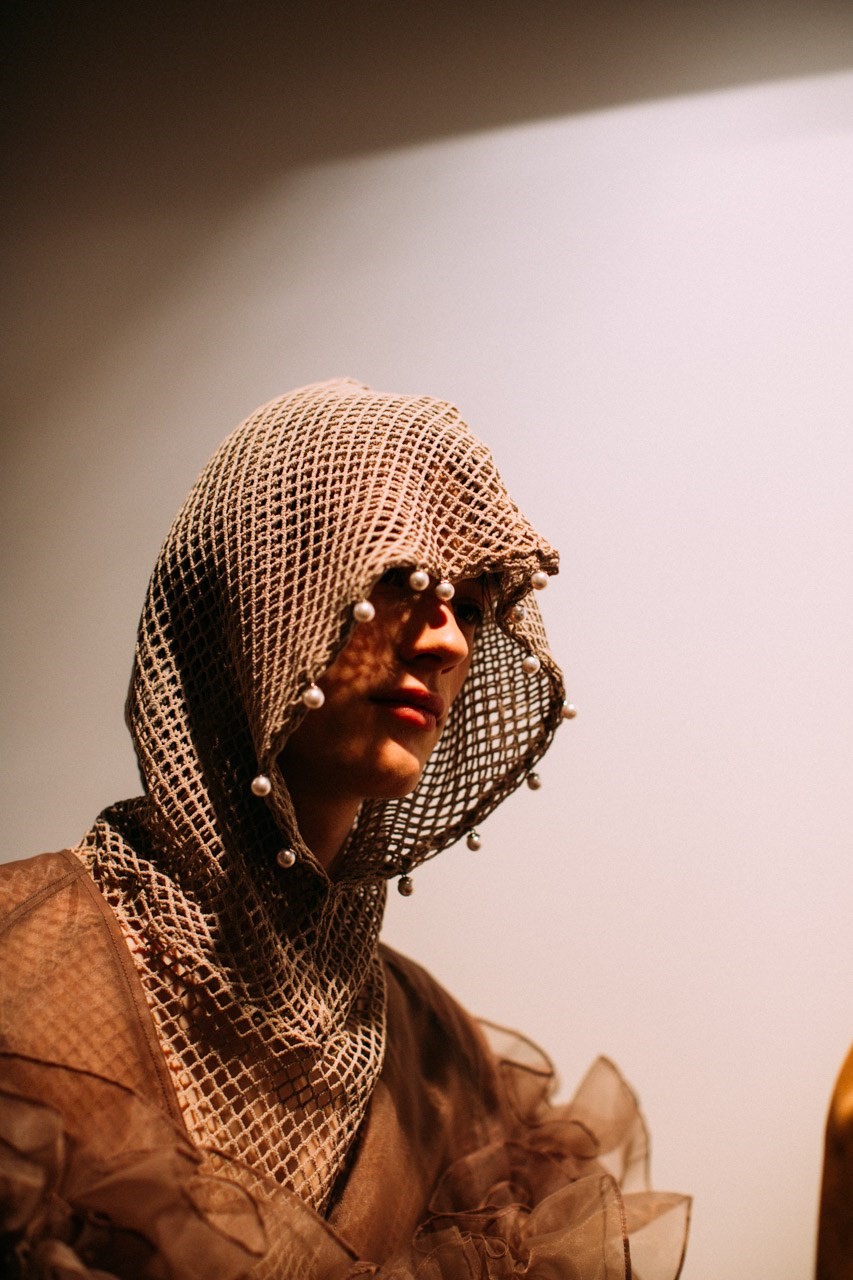
“In terms of the earlier collections (pre-2017), we tried to do what we were supposed to do,” says Kyu Yong, referring to becoming sustainable in Korea’s fashion industry, and for a general public which for the most part wears simple classics, like trench coats and slim tailoring. “But we really wanted to put ourselves in the place of doing whatever we want to. We’re more happy with what we’re doing now, we’re struggling and learning all these new things, but we feel more like designers.”
“We didn’t intend to do anything with celebrities and we don’t have the time or resources to focus on that side of it. It’s [about] focusing on ourselves and [putting] our philosophy into the clothes” – Shin Kyu Yong
Despite the climate of hype and celebrity co-sign that young designers, such as themselves, can benefit so greatly from, Ji Sun and Kyu Yong are indifferent to both. They appreciate the global audience K-Pop has helped bring to Korean creatives, mention that Korean artists have asked them to design for stage shows, and that Kendall Jenner had bought herself one of their pieces at Barney’s – and yet they almost shrug all this off. “We didn’t intend to do anything with celebrities and we don’t have the time or resources to focus on that side of it,” Shin Kyu Yong explains. “It’s [about] focusing on ourselves and [putting] our philosophy into the clothes.”
As a way of removing gender (or at least eliminating the focus on it) from their shows, Shin and Park often mask their models, making it difficult to distinguish whether they are male or female – yet they’ve noticed that currently “our buyers are mainly women’s buyers so we know that there’s more interest from women in our clothes,” says Ji Sun. This hasn’t deterred their passionate male clientele, though, who Ji Sun says will “come into the women’s section for the clothes. They are really self-expressive, they know what they want, have a strong voice, and they are big fans.”
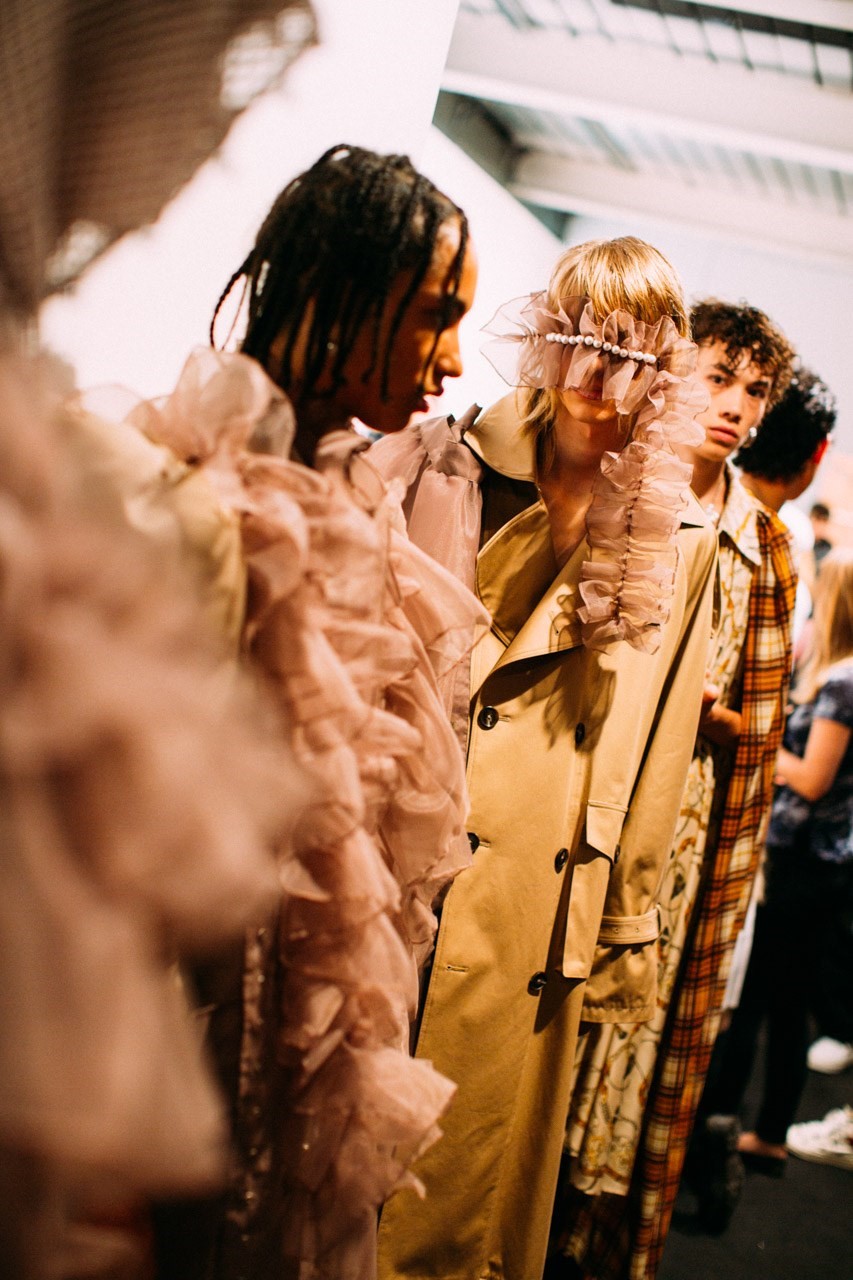
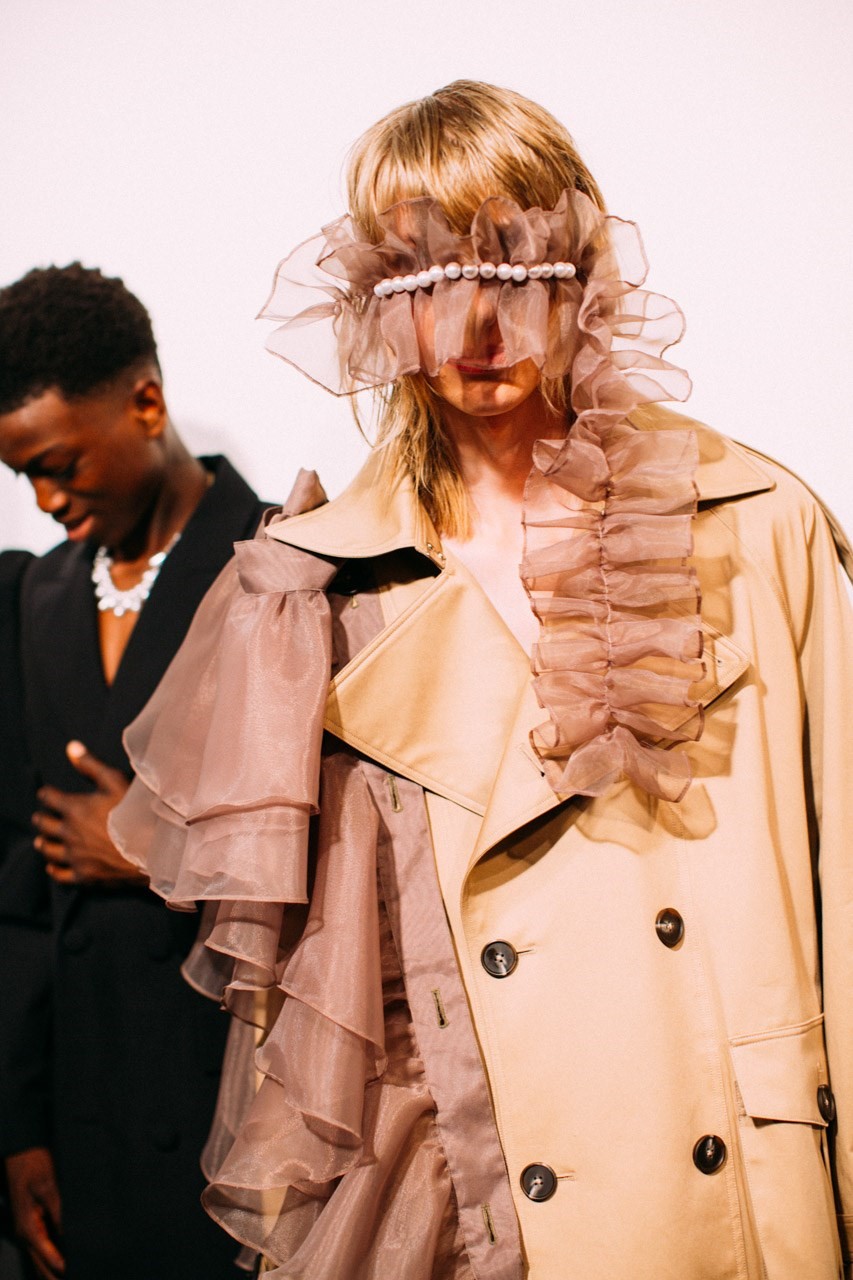
The duo aren’t blind (no pun intended) to such ironies and are no longer shy about their beliefs, which were never a passing nod to the new wave of gender politics but at the very core of the label’s ethos. In their S/S17 collection, an embellished slogan on a cropped vest spelled out “NAIVE” but by S/S18, their slogans read “Blind Gender Roles” and, more to the point, “Fuck Gender”. “We didn’t mean to become louder but we did discuss making the statement really straightforward. We’re trying something new (in that respect), it just happened to come out that way,” they say, laughing.
“We want to break the rules. We try to be brave enough to say a word we shouldn’t say or express things we shouldn’t and if we continually do it season after season, there will be some positive impact” – `Park Ji Sun
That certainly garnered international attention, but it’s not hard to see it as a message for their native audience in Korea, which is openly prejudiced against the LGBTQ+ community (being openly gay can ruin careers, anti-gay rallies are held, while homosexuality is banned and punishable by jail time, within the military) and where, despite the fact that young, hetrosexual Seoulite males are happy to use sheet masks and concealer, a traditional (and often toxic) idea of masculinity predominates.
Ji Sun and Kyu Yong saw this archaic mindset flourishing among their peers during their compulsory military service and are (whether they see themselves as such or not) softly spoken revolutionaries. They explain they would be “honoured” if Blindness could reach a similar level of international success as Korean menswear label, Wooyoungmi, despite the differing characteristics of their clothes – not least because of what it could mean for Korean culture.
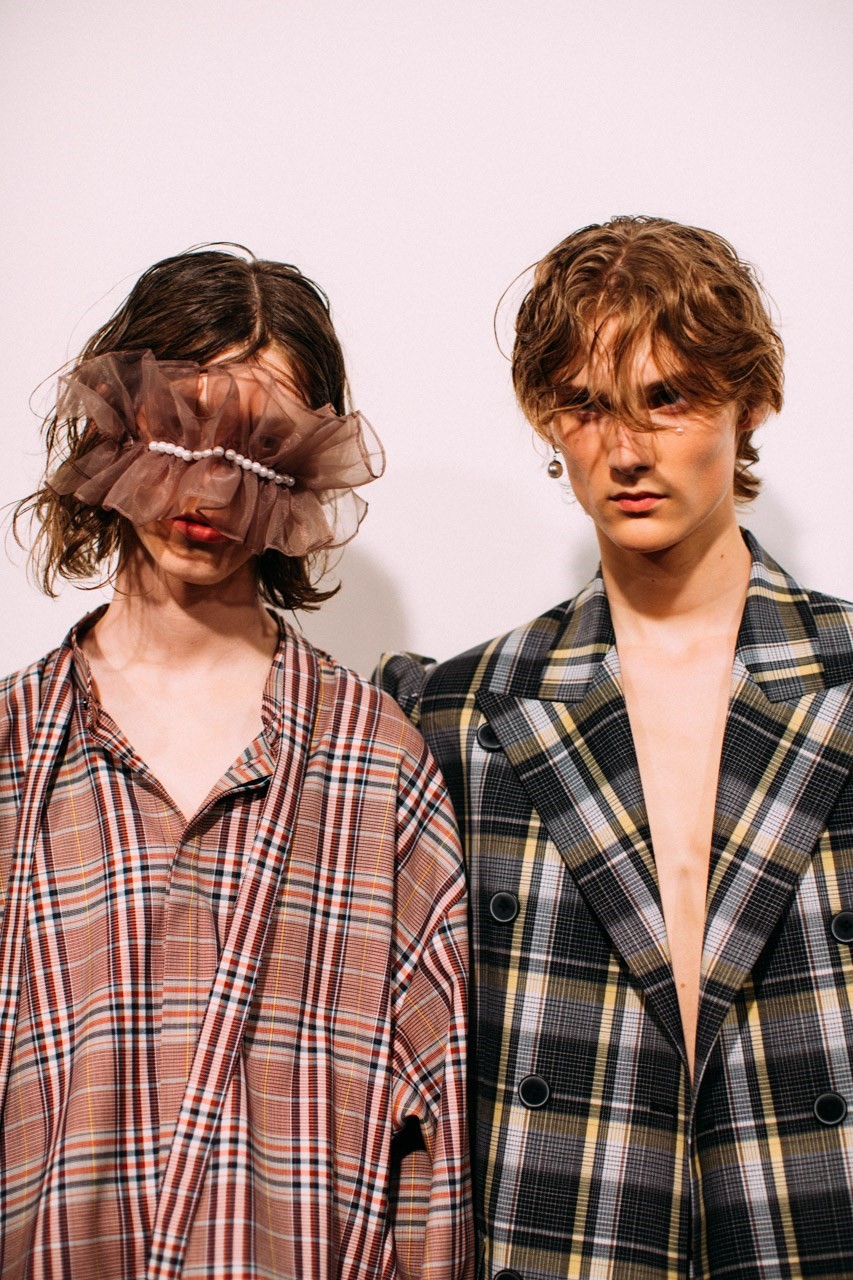
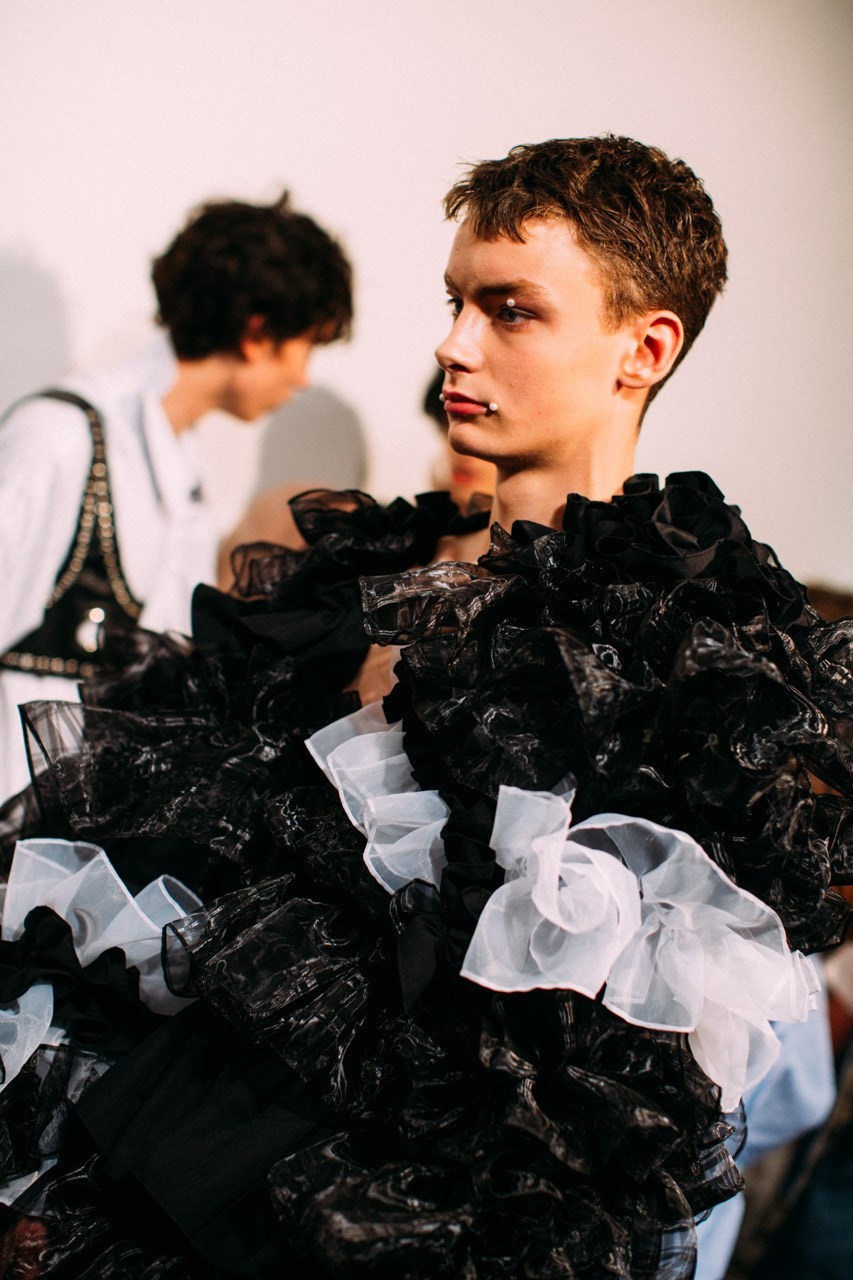
“We want to break the rules,” says Ji Sun. “We try to be brave enough to say a word we shouldn’t say or express things we shouldn’t, and if we continually do it season after season there will be some positive impact. The younger generation are very expressive and that’s why the Korean fashion industry has grown so fast. But at the same time, the culture still [makes it] very challenging to express yourself. We want to send a message and challenge young people.”
“I think it’s a matter of time,” Kyu Yong adds. “The younger generation gets their education properly in Korea and outside of it. As time goes on, this generation will change the whole paradigm of society. Masculinity will change as a part of that.”
